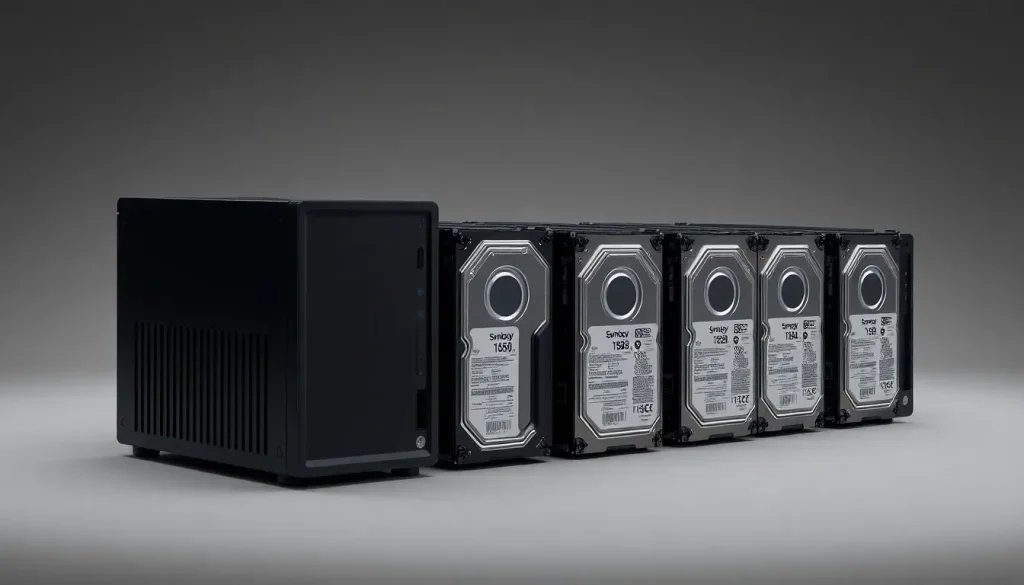Synology supports all hard drives in 2025 NAS models

The landscape of data storage is rapidly evolving, and businesses and individuals alike are seeking the best solutions for their needs. Synology, a leader in network-attached storage (NAS) systems, has recently made headlines by adjusting its policy regarding hard drive compatibility. As we delve into this topic, we’ll explore the implications of these changes and what they mean for users in 2025 and beyond.
Understanding the dynamics of storage options is crucial for anyone looking to invest in a NAS device. This article will clarify the recent developments in Synology's policies and provide insights into what users can expect moving forward.
- Understanding Synology's NAS Hard Drive Policy Change
- Key Features of DiskStation Manager 7.3
- A delay, not a climbdown: What it means for users
- Will Synology restrict drive compatibility again?
- Is a NAS worth it in 2025?
- Are Synology products primarily from China?
- How long will Synology NAS devices last?
- What are the disadvantages of using Synology NAS?
Understanding Synology's NAS Hard Drive Policy Change
Synology has recently revised its approach to the hard drive compatibility of its 2025 NAS lineup, which previously mandated the exclusive use of drives that it sells. The company announced its new policy with the release of DiskStation Manager (DSM) 7.3, acknowledging that limiting users to Synology-certified drives may not have been the best approach. This update is a step toward more flexible storage options but still requires careful consideration.
While the decision to allow non-validated third-party drives is a welcome change, it’s vital to note that it doesn’t represent a complete abandonment of Synology's stringent standards. Instead, it appears to be a temporary measure aimed at alleviating user frustration while the company develops a more robust verification process for third-party drives.
Key Features of DiskStation Manager 7.3
The release of DSM 7.3 introduced several features designed to enhance user experience and storage management, including:
- Support for "non-validated third-party drives."
- Improved data tiering capabilities for efficient storage use.
- Enhanced security features to protect user data.
- AI-powered collaboration tools to streamline workflows.
These enhancements showcase Synology's commitment to evolving its products in line with user expectations while maintaining a focus on reliability and performance.
A delay, not a climbdown: What it means for users
Critics argue that Synology's announcement is less of a complete policy reversal and more of a delay in its original plan. The company emphasizes that it is still dedicated to maintaining high standards for drive compatibility. This means that while users can now utilize a broader range of drives, Synology will still assess and verify third-party options to ensure they meet its performance criteria.
Synology has stated that it is currently collaborating with various drive manufacturers to expedite the verification process. This collaboration will ultimately allow for a more diverse range of supported drives, which could provide users with more choices and potentially lower costs.
Will Synology restrict drive compatibility again?
The future of hard drive compatibility within Synology NAS devices remains uncertain. Although DSM 7.3 allows for the installation of third-party drives, Synology may revert to stricter controls in the future. Their intention to validate drives means that only those meeting their standards will be authorized for use.
Users should be mindful that this could lead to a scenario where certain drives, even if popular among consumers, may not be supported if they fail to meet Synology’s criteria. Keeping informed about Synology's ongoing testing and validation processes is key to making wise purchasing decisions.
Is a NAS worth it in 2025?
As the demand for data storage grows, the question of whether investing in a NAS system remains relevant arises. Here are some considerations for potential buyers:
- Scalability: NAS systems allow users to increase their storage easily as their needs grow.
- Data Security: With built-in redundancy options, NAS devices can protect against data loss.
- Remote Access: Users can access their files securely from anywhere, enhancing flexibility.
- Cost-Effectiveness: Over time, NAS systems can prove to be more economical than cloud storage services.
As we move into 2025, NAS systems like those from Synology continue to offer compelling advantages, particularly for businesses and power users.
Are Synology products primarily from China?
Synology is a Taiwanese company that produces NAS devices and related software. While many of its products are manufactured in various countries, it is essential to note that Synology operates independently of the typical Chinese tech landscape, focusing on quality and innovation in its offerings.
How long will Synology NAS devices last?
The longevity of a Synology NAS device often depends on several factors, including:
- Model Specifications: Higher-end models typically last longer due to better hardware.
- Software Updates: Regular updates can extend the lifespan of the device by improving functionality and security.
- Usage Patterns: How often and in what capacity the device is used will impact its longevity.
Generally, users can expect a well-maintained Synology NAS to last for several years, making it a valuable investment.
What are the disadvantages of using Synology NAS?
Despite their popularity, Synology NAS devices do have some potential drawbacks:
- Initial Cost: The upfront investment can be higher compared to simple external drives.
- Complexity: Setting up and managing a NAS can be more complex than other storage solutions.
- Dependency on Software: Users must keep up with firmware and software updates to ensure performance and security.
Understanding these limitations is crucial for making an informed decision when considering a NAS system.
As Synology continues to evolve its product offerings, remaining aware of its policies and the broader market dynamics will help users leverage the advantages of NAS technology effectively. For a visual understanding of these changes, take a look at this insightful video:




Leave a Reply